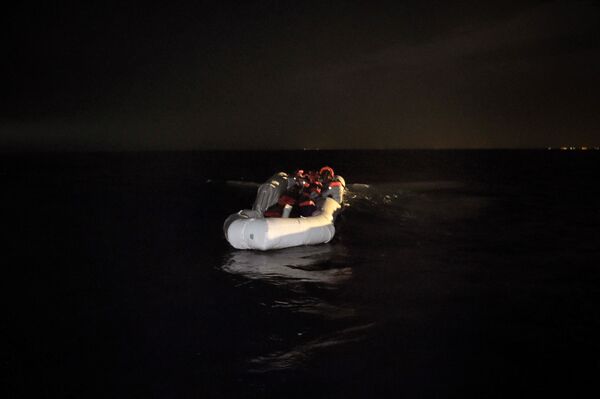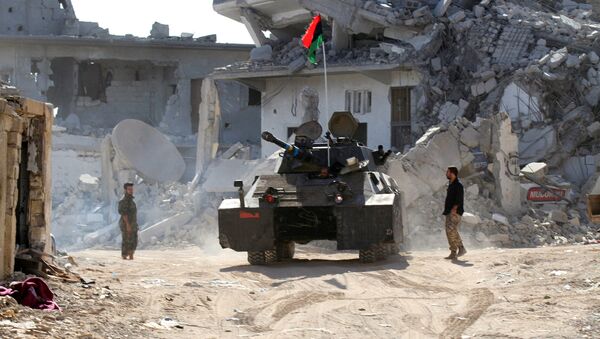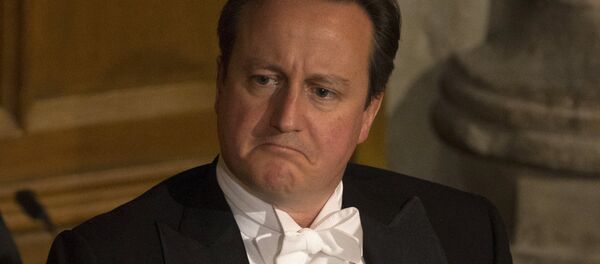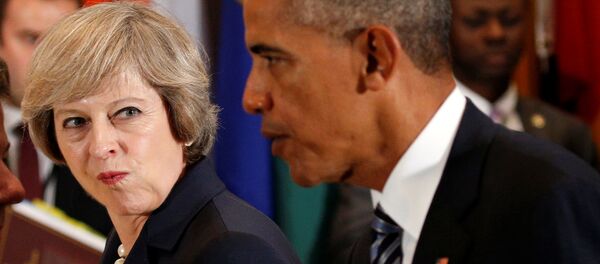It follows a report published in September, by the parliamentary Foreign Affairs Committee which concluded that London's strategy was based on "erroneous assumptions and an incomplete understanding of the evidence."
Libya: Examination of intervention and collapse and the UK's future policy options inquiry — UK https://t.co/eU0qmt2y1A via @UKParliament
— Samuel GhilesMeilhac (@SGhilesMeilhac) December 11, 2015
Accusations that have been rejected by the British government which insists that its involvement in the north African country to overthrow its leader Muamar Gaddafi "undoubtedly" saved civilian lives and weakened Daesh.
"They [British government] had to decide quickly whether to do something or not and the Security Council decided to take action," former British Ambassador to Libya Sir Oliver Miles told Sputnik.
"And I think that they were right and with hindsight, one can wonder about the consequences and so on but the idea that Gaddafi would not have committed mass murder I think is fanciful, frankly."
Sir Oliver suggests that the committee's report doesn't take into account that more than a thousand people were murdered in prisons in Libya a decade before the NATO led intervention backed by the UK, France and the US began.
"The fact is that in 2011, the international community was faced with an urgent request for intervention in Libya by the people who had successfully risen up against Gaddafi in the eastern part of the country and were threatened by Gaddafi with what amounted to genocide," Sir Oliver told Sputnik.
In defense of the British government, Sir Oliver said it "had to decide quickly whether to do something or not and the Security Council decided to take action and I think that they were right."
British government claims Libya intervention "undoubtedly" saved civilian lives https://t.co/R5W2TaU6Fa
— The New Arab (@The_NewArab) November 25, 2016
The report by the Foreign Affairs Select Committee which also heard from former defense minister Liam Fox and ex Prime Minister Tony Blair said the prime minister at the time, David Cameron was "ultimately responsible for the failure to develop a coherent Libya strategy."
Since the 2011 invasion, Libya descended into chaos and is described as "lawless." Many of the weapons once in the hands of rebels determined to overthrow Gaddafi has found their way into the hands of Daesh militants who continue in their mission to overtake swathes of the country.
Meanwhile, around 90 percent of the boats carrying refugees and asylum seekers set sail from the Libyan coastline in search for Europe, at the behest of people smugglers who are said to be operating with impunity.

The September report compiled by the foreign affairs select committee said: "The result was political and economic collapse, inter-militia and inter-tribal warfare, humanitarian and migrant crises."
Also responding to the report's findings, Peter Ford, former British Ambassador to Syria said ministers should have paused "for consideration" before embarking on their intervention.
"At the time, it seemed to those involved to be a good idea but they plunged into it without considering the future post-mortem," Peter Ford told Sputnik.
"A pause for consideration might have led to a more cautious approach which we can say now would have been better for the Libyan people than the chaos and mayhem that they are suffering," he said.
The former Ambassador to Syria doesn't think the British, French and American governments have learned any lessons from their action in Libya.
"With every day that passes we see more evidence that they have learnt nothing," Peter Ford told Sputnik.
"They've drawn none of the correct conclusions and they just want more of the same."
"Thankfully there has been regime change not in the Middle East just now but in America and this regime change may prove to be one that is a little more welcome as it leads to less interventions around the world," Peter Ford said with reference to the recent election of Donald Trump as US President-elect.
As far as the British government is concerned, it does not agree with the foreign affairs committee report:
"The actions of the UK and the Coalition undoubtedly saved the lives of innocent Libyan civilians."




